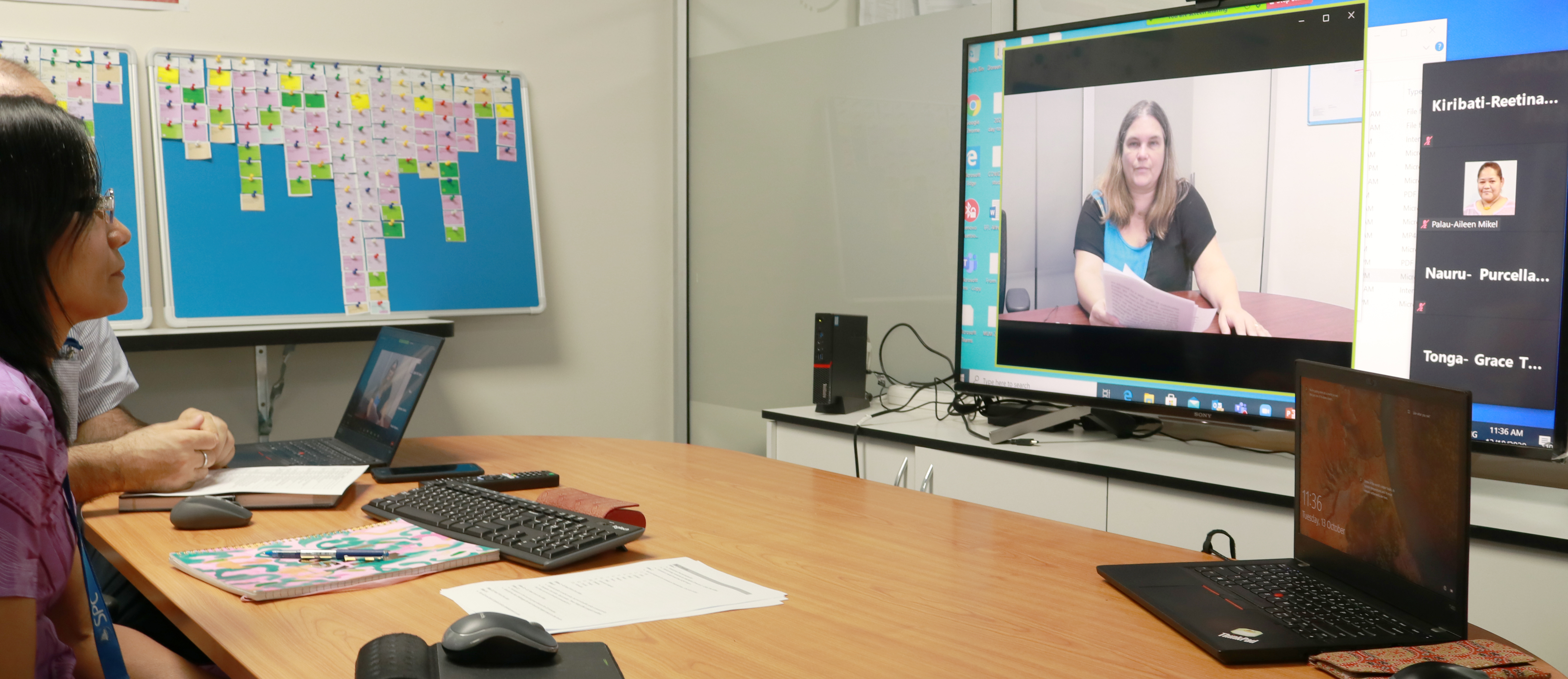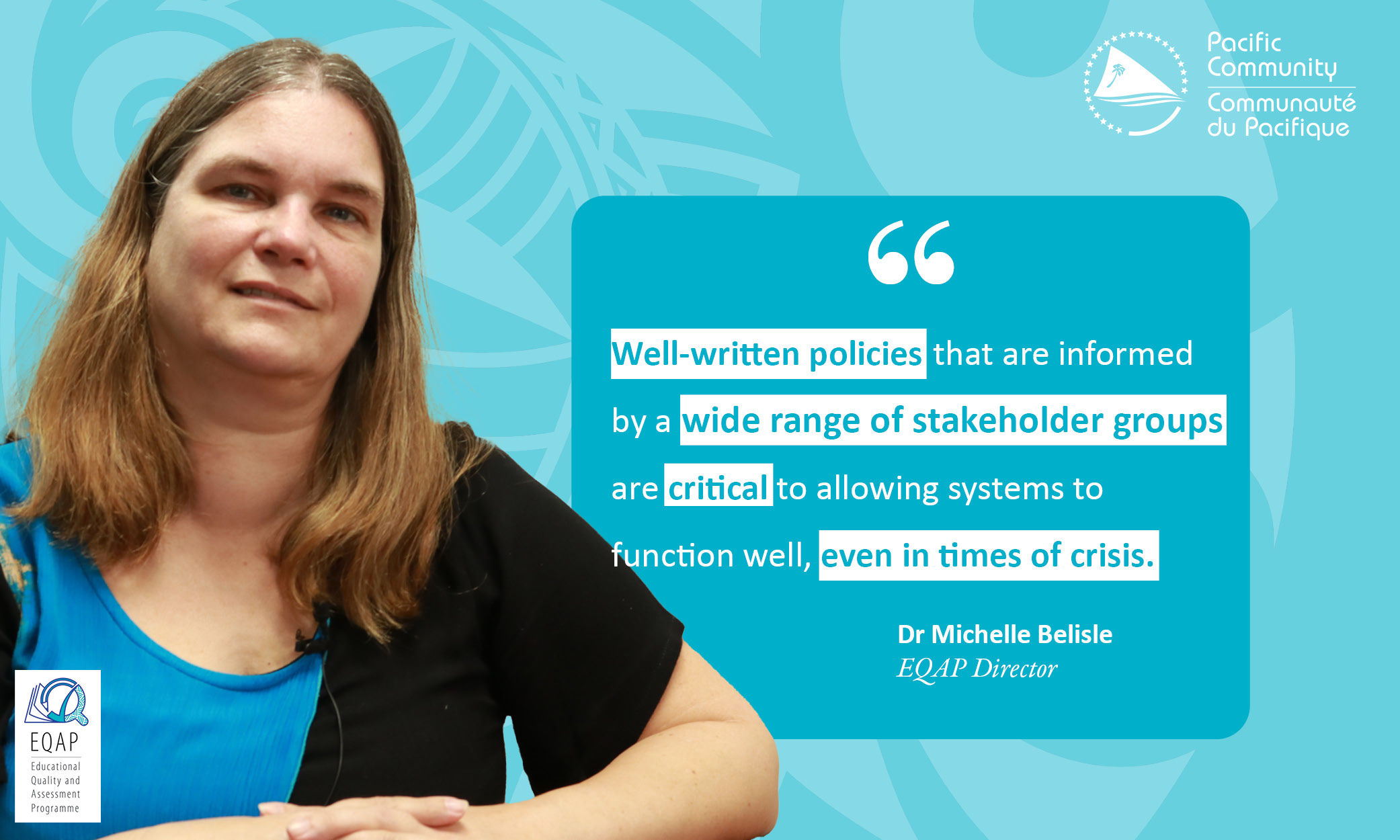

EQAP Director's Opening Remarks at the launch of the first Regional Education Policy Workshop
GOOD morning and good afternoon, it’s always hard to know how to greet everyone when we are almost 40 people spread out over thirteen countries across the Pacific! At any rate it is my pleasure to welcome all of you to the Professional Development Workshop on Policy Development. This marks the first time the EQAP Policy and Research team have hosted a regional workshop on policy development and we really hope that you are excited about the opportunity as we are.
Participating in the workshop this week we have a range of people. We have policy officers, senior leaders, statisticians, school leaders, and education specialists from across a broad range of education system focal areas. In your roles you will all know that policies are an essential part of any organisation. Policy is the course of action taken by the government that is designed to attain specific results. Policy guides people on what to do and what behaviour is acceptable in certain situations since the policy is associated with rules and agreed ways of doing things. Many of us have been in situations where, even though the questions may be complex and the decisions difficult, we have been able to turn to policies to help support the course of action taken by our governments or other employers. My own experience, and I am guessing that some of you will be able to say the same, has been that often we turn to policy only to find that it doesn’t stand up under the strain – perhaps the policy is outdated or too limited in scope or perhaps the policy doesn’t take into account the context in which it is being applied.
 As the world around us changes rapidly, the contexts in which education systems function are also changing and policies are hard-pressed to keep up. Well-written policies that are informed by a wide range of stakeholder groups are critical to allowing systems to function well even in times of crisis. Any policy, however, needs to be able to adapt to change so it is not enough to simply create a good policy and put it away as complete. Regular and thoughtful review of policies is just as important as policy development when it comes to creating a policy environment that supports and sustains the education system.
As the world around us changes rapidly, the contexts in which education systems function are also changing and policies are hard-pressed to keep up. Well-written policies that are informed by a wide range of stakeholder groups are critical to allowing systems to function well even in times of crisis. Any policy, however, needs to be able to adapt to change so it is not enough to simply create a good policy and put it away as complete. Regular and thoughtful review of policies is just as important as policy development when it comes to creating a policy environment that supports and sustains the education system.
Developing a good policy is not a simple process and understanding the policy development cycle can assist in writing and subsequently implementing and reviewing good policies. It is our hope that over the next few days we will together raise our understanding of policy development and review at its various stages as well as how a variety of stakeholders factor into the policy development process. While the policy and research team from EQAP will offer presentations and discussions, an important part of the next few days is to provide a place where the country teams are able to share their own experiences and learn from one another, both virtually and, if you are participating with others from your ministry, within the teams in the individual country locations.
We look forward to your participation in the workshop today and throughout the week and hope that you will find the time valuable to you in your own work and to your ministries more broadly. Again, welcome and I look forward to hearing about the outcomes of the workshop this week.